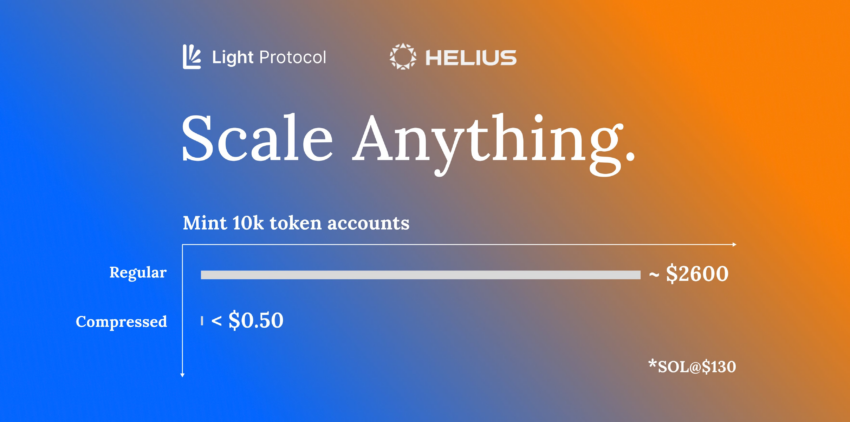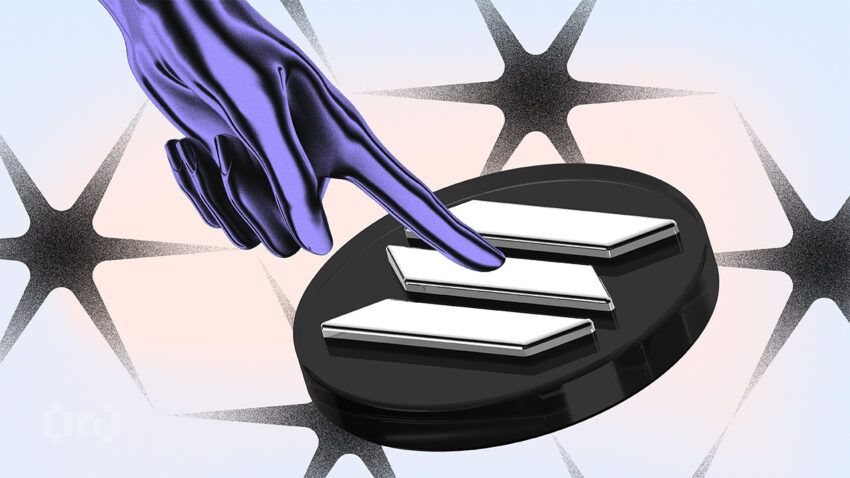The Solana (SOL) blockchain network has welcomed a groundbreaking feature that is garnering significant attention from the crypto community.
On June 21, Light Protocol revealed that it partnered with Helius Labs to launch zero-knowledge (ZK) compression on Solana.
What is Solana’s ZK Compression?
ZK Compression is designed to enable scalable application development. It allows developers and users to compress their on-chain state, drastically reducing state costs while maintaining Solana’s security, performance, and composability.
The tool uses ZK proofs to lower the costs of creating tokens and accounts on Solana. These proofs ensure data integrity and enable retrieval through RPC providers that support ZK compression. Developers can minimize on-chain storage costs by storing only state roots on-chain, with other data on the more affordable Solana ledger space.
Helius CEO Mert Mumtaz highlighted the significant cost reduction and scalability improvements brought by ZK compression.
“[In summary,] we compress onchain state to get 10,000x scale improvements and get 1 step closer to building The Financial Computer — an unstoppable, global, atomic state machine syncing at the speed of light,” he said.
Read more: What are Zero-Knowledge Proofs? Securing Growth for Web3 Apps

Austin Federa, Solana’s Head of Strategy, noted that this solution addresses the challenges of on-chain account storage. According to him, compression will result in substantial cost savings for tokens and accounts on Solana while enabling businesses to build products that would bring more users on-chain.
“Compression on Solana solves one of the key pain points faced by institutions and mass-consumer applications: the cost of on-chain account storage. Generalized compression brings the same cost-savings to tokens and accounts as cNFTs did to NFTs before,” Federa stated.
However, some crypto community members, like Adam Cochran, argue that this feature is essentially a layer-2 (L2) network. According to Cochran, the Solana compression tool is an L2, but its developers are pushing a marketing narrative to debunk this.
“One day the Solana crowd will realize what they’ve built is a good L2 feature/validity based rollup and not a monolith chain — and that’s a fucking good thing, so long as they are honest to their users about what it is,” Cochran added.
Similarly, Ethereum investor Ryan Berckmans asserted that “the new product is actually an L2. L2s are a winning model.”
Read more: Layer-2 Crypto Projects for 2024: The Top Picks
Anatoly Yakovenko, Solana co-founder, countered by explaining that the product functions like an L2 without the typical downsides. He also acknowledged that “it is not perfect, still has smart contract risk and smart contract upgrade risk, and needs off-chain content-specific indexers.”
“Sure. It’s an L2 that doesn’t need a security council multisig, users don’t need to switch chain ids, doesn’t need a governance token, doesn’t need an external sequencer, solana validators still get all the transaction fees,” Anatoly remarked.
Disclaimer
In adherence to the Trust Project guidelines, BeInCrypto is committed to unbiased, transparent reporting. This news article aims to provide accurate, timely information. However, readers are advised to verify facts independently and consult with a professional before making any decisions based on this content. Please note that our Terms and Conditions, Privacy Policy, and Disclaimers have been updated.


